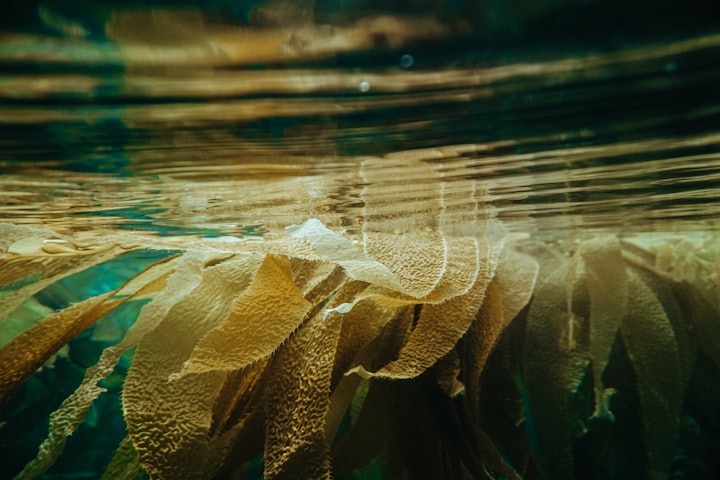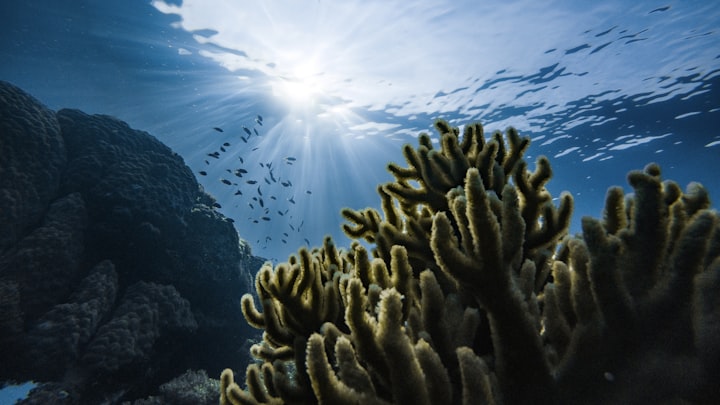Interesting facts about Sea Kelp biology
& What dangers Kelp forests face

Kelp, or often referred to as sea kelp, is a type of algae or seaweed.
Though it looks like an underwater tree, kelp is a type of brown algae and belongs to several species of the order Laminariales. Many species play a significant role in the marine ecosystem, from sheltering marine organisms from storms to supporting marine biodiversity.
Sea kelp is a critical species in coastal marine environments. So what's so interesting about it?
1) Fast growth rate
In ideal water conditions that are nutrient-rich, with temperatures between 5 and 14'C (43 and 57'F), kelp can grow up to 45cm per day (18 inches), according to the National Ocean Service, which is part of the larger NOAA. Some kelp can often grow to as high as 150 feet underwater.
2) Worldwide distribution
Kelp forests are located worldwide, including the west coasts of North and South America, Southern Africa and Australia, and North-western Europe.
In North America, kelp forests are found on the Pacific coast from Alaska and Canada to Baja, California. They grow in temperate climates.
3) Cold water species
Most kelp species are found in cool, shallow, nutrient-rich cold water. Forests typically occur in water depth averaging between 50-130 feet deep according to NOAA, and that's because kelp depends on sunlight, so photosynthesis can take place to produce food.
4) Shelter for life
Many marine organisms find shelter or food within kelp forests. Many also use the protection from the large blades as protection for eggs and young against predators or to weather storms.
Some marine mammals and birds you might find in or around a kelp forest are seals, sea lions, whales, sea otters, gulls, terns, snowy egrets, great blue herons, cormorants and shorebirds.
5) No roots
Interestingly, kelp doesn't have roots; instead, an evolved adaption called a 'holdfast' attaches itself to a solid substrate such as rocks or debris is used. Holdfast acts like roots, but they don't absorb nutrients as roots do and are purely for anchorage.
6) Floating bladders
Many species of kelp have pneumatocysts which are gas-filled bladders that help keep the fronds afloat in the water.
7) Lots of applications
Kelp is harvested for many products, including toothpaste, shampoos, creams and a wide range of foods and salad dressings. It's even used in some pharmaceuticals. Between 100,000 and 170,000 tons of kelp is harvested just from Californian waters each year!
8) Farming
Kelp is also an economically important species as its part of a £5 billion global seaweed-farming industry. Kelp absorbs C02 from seawater, which is crucial in helping combat climate change, and it also makes nearby water less acidic. That's why many farms also raise shellfish since a lower acidity creates a better environment for shell growth. By growing kelp and mussels on floating ropes, which also support baskets of scallops and oysters, a farm can produce 40 metric tons of kelp and 1 million bivalves per hectare per year.
Dangers to kelp
Which can be harmful to kelp forests as they do best in colder temperatures.
Extreme storms can wipe our entire areas of kelp by ripping the fixtures from the seafloor.
Sea urchins are also a danger as big groups can prevent kelp from growing large enough to form forests as they are eaten quicker than they can grow.
Kelp forests are also at risk from fishing-related destruction, coastal pollution, accidental damage caused by boats and climate change.
About the Creator
Bradley Knight
Grown on the British Isles, exploring beyond.
Marine Ecologist by trade, Scientific Illustrator and Communicator by hobby.






Comments
There are no comments for this story
Be the first to respond and start the conversation.